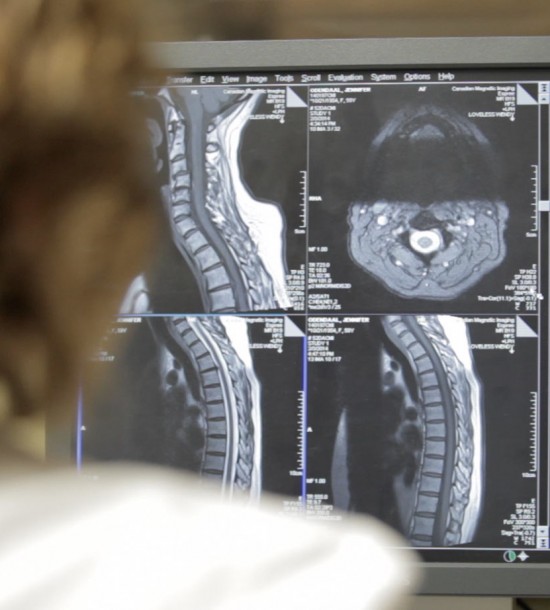Court Questions Credibility and Rejects Opinion of ICBC Doctor Martin Grypma
Posted on by Mussio GoodmanIn claims involving personal injury, it is often necessary for both the claimant and ICBC to retain independent medical experts to assess the claimant’s injuries.
The purpose is to have an independent doctor provide the parties – and ultimately the Court – with an impartial expert opinion on the claimant’s injuries. The opinion usually includes a diagnosis of the claimant’s present injuries and his or her prognosis for the future. These opinions are very helpful to the parties in reaching a settlement, or to the Court in awarding damages at trial.
Pursuant to the Rules of Court in British Columbia, any doctor who provides a written expert opinion has a legal duty to be impartial and refrain from being an advocate for any party. In addition, the doctor has a legal duty to certify in their report that they are aware of the duty, have made their report in conformity with the duty, and will conform with the duty if called upon to give oral or written testimony at trial.
ICBC routinely retains expert doctors from a roster that includes several who have been criticized by the Court for various reasons, including failing to abide by the duty to not advocate for any party.
One such expert whom ICBC routinely retains to provide opinions is Dr. Martin Grypma. Dr. Grypma is an orthopedic surgeon whose practice now largely involves conducting medical assessments for ICBC.
As we have previously discussed, Dr. Grypma has been strongly rebuked by the Court over the last several years. His opinions have been deemed to be superficial, ill-considered, argumentative, and outside the scope of his expertise.
In spite of this, ICBC continues to routinely retain this doctor to opine on claimants injuries. The result is yet another recent decision by the Court on the troubling conduct of Dr. Grympa and ICBC.
In Kim v. Lin, 2016 BCSC 2405, the Court singled out Dr. Grypma as a witness that is neither reliable nor credible.
[118] … I appreciate that Dr. Grypma is an orthopedic surgeon, and as such his opinion would ordinarily be accorded considerable weight. However, after reviewing his opinions in the context of the whole of the evidence and observing him under cross-examination, I have concluded that he failed to present balanced and impartial evidence in this case.
[119] The first observation I would make about Dr. Grypma’s reports is that he bases his conclusions about Ms. Kim’s condition largely on the absence of complaints in the clinical records …. He also failed to mention that in her report Dr. Budzianowska-Kwiatkowski confirmed that in the accident-related examination on February 16, 2011, Ms. Kim reported that she had suffered from back pain consistently after the Accident.
[120] Dr. Grypma also interpreted entries in the records in a way to suggest that Ms. Kim was recovering when those records do not support any such conclusion. The most egregious example of this is Dr. Grypma’s reference to a clinical record dated October 10, 2008 in Dr. Budzianowska-Kwiatkowski’s records that “things are going really well”…
[122] However, it is obvious to me that the reference to things going really well in Dr. Budzianowska-Kwiatkowski’s records has nothing to do with her and in fact refers to her child…
[124] This reference is consistent with the tenor of Dr. Grypma’s opinions, which I found to be adversarial in tone and content. Dr. Grypma’s comment that Ms. Kim’s travelling to Korea indicated that she must have been doing really well is argumentative….
[125] Finally, I note that Dr. Grypma’s first report stated that symptoms of a back injury must arise within two to three days post-accident to be have been caused by the accident, and that because Ms. Kim did not report any lower back pain in that interval it was unlikely that her subsequent back pain was accident-related. However, in his second report, prepared after he learned that Ms. Kim did report such symptoms within three days, he stated that if the onset of lower back pain occurred more than 24 hours after the accident, injury or muscle pain was very unlikely.
[126] When asked why he changed the time frame from two to three days to 24 hours, Dr. Grypma said that he had spoken to his colleagues in neurosurgery and decided that an earlier onset of symptoms was necessary. I find this answer to be unconvincing.
This selection of reported case law shows that, in spite of ICBC’s public-relations campaign about how they treat injured claimants fairly, ICBC has hired and continues to hire doctors who have a well-established reputation for bias and other questionable conduct. In our view, choosing Dr. Grypma to opine on a claimant’s injuries is clearly an act of bad faith, the true purpose of which is to discredit and diminish a legitimate injury claim rather than pursue the truth of the matter so as to provide fair compensation.
It also underscores the important role a personal injury lawyer can play in assisting an injured claimant. At Mussio Goodman, we go to great lengths to ensure that our clients are protected from such biases, while retaining the proper experts to assess our client’s injuries in a fair and impartial manner.
Tweet


